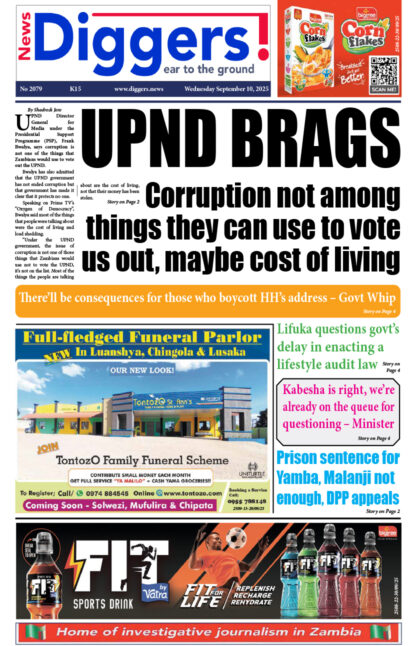The International Monetary Fund has pressed Zambia to redefine its borrowing plans going forward in view of the risks associated with high levels of debt.
And Zambia has agreed to furnish the IMF with its borrowing plans for 2018.
According to a statement issued by Ministry of Finance permanent secretary economic management Mukuli Chikuba, government and IMF also discussed the need to continue fiscal consolidation and reassessment of the priorities of the 2018 budget.
“The Zambian Government, led by the Minister of Finance Felix Mutati, and the IMF had a number of meetings on the sidelines of the IMF/World Bank Annual Meetings in Washington DC, USA, at which discussions were held on the way forward following the completion of the Article IV *REVIEW* by the IMF Board. Both the IMF team and Government Authorities are generally in agreement with the outcome of the Article IV consultations, particularly the concerns raised with respect to the rising debt risks and the recommendations made on fiscal consolidation and the need to lower debt risks,” Chikuba stated.
“The two sides discussed the need to redefine Zambia’s borrowing plans going forward in view of the risks associated with high levels of debt, the need to continue fiscal consolidation and reassessment of the priorities of the 2018 budget.”
And Zambia agreed to furnish the IMF with its borrowing plans for 2018.
“In view of the above, the two sides agreed on the need to review and redefine the macroeconomic framework that anchors a path towards debt sustainability. The Government agreed to provide data on recent developments in the economy, the 2018 budget and the borrowing plans. Once this data had been reviewed and validated, the IMF would field a staff visit to Zambia with the objective of redefining the macroeconomic framework,” stated Chikuba.
“The IMF Director – Africa Department Abebe Selassie and the newly appointed Mission Chief to Zambia Brileau Loko will soon conduct a short outreach mission to Zambia to meet with country authorities to discuss recent economic developments and policies.”





